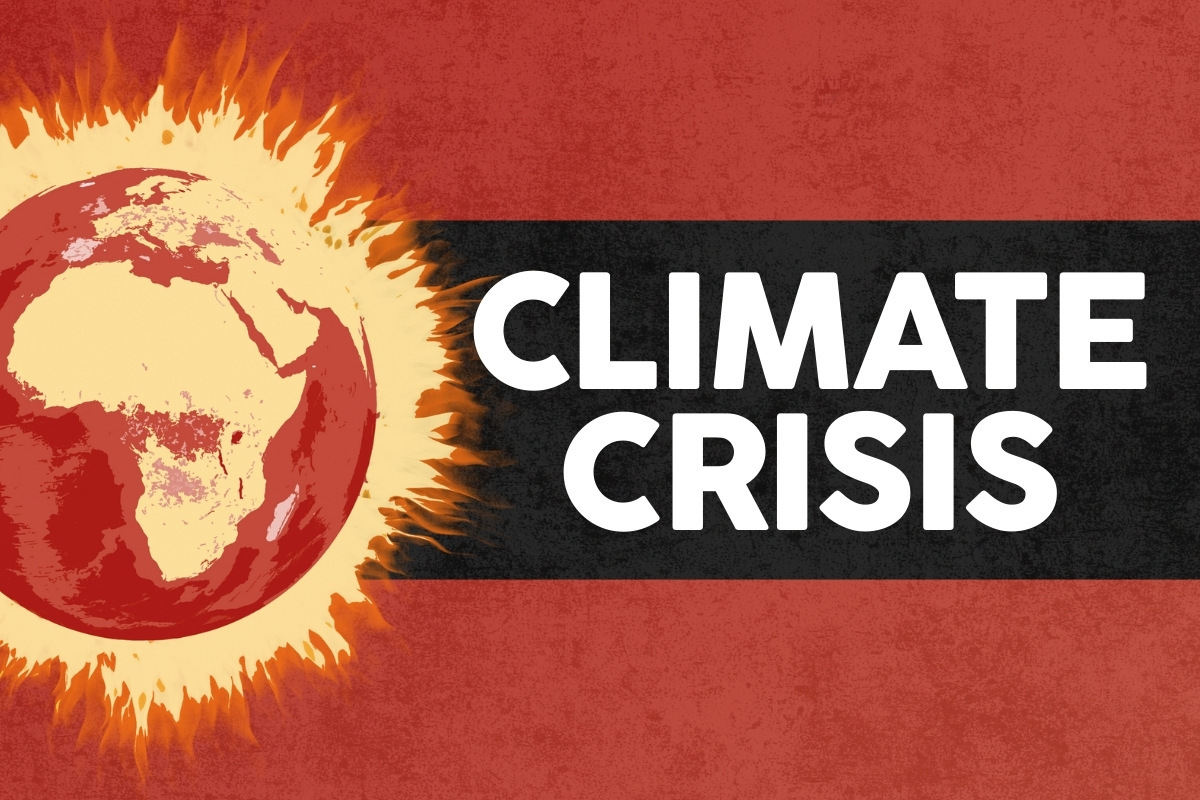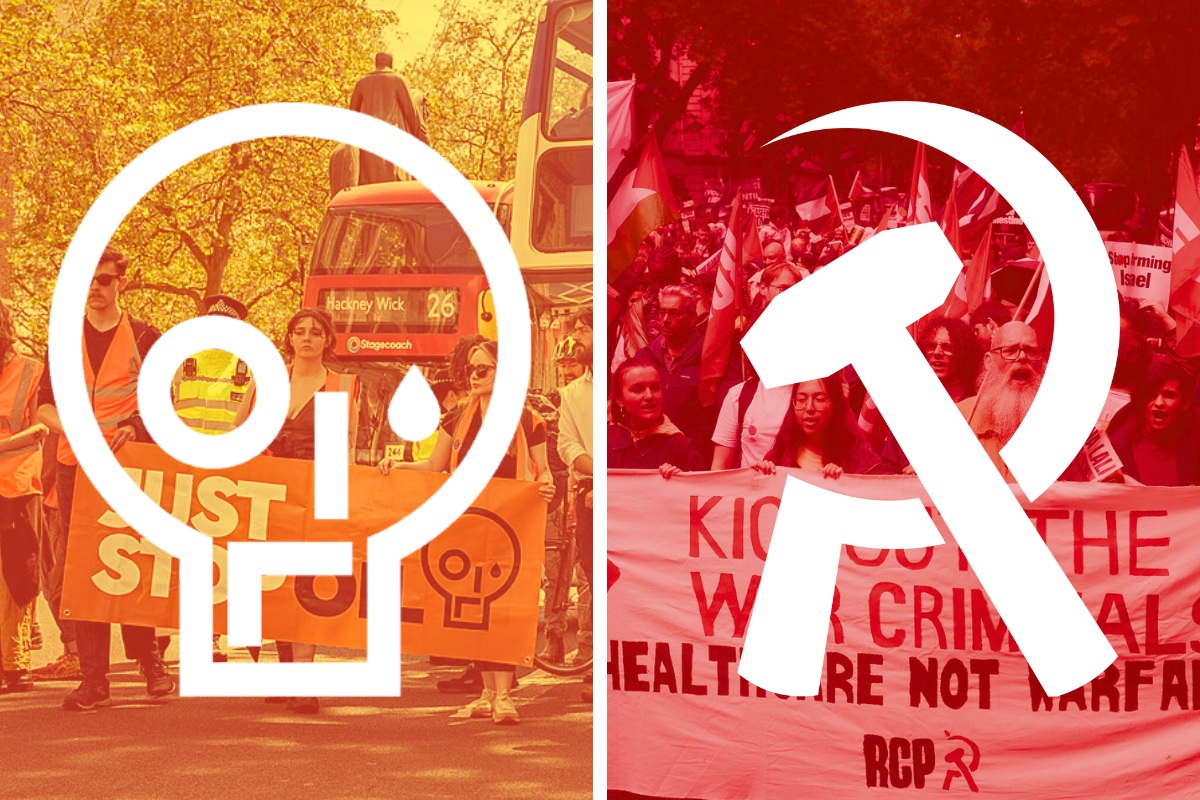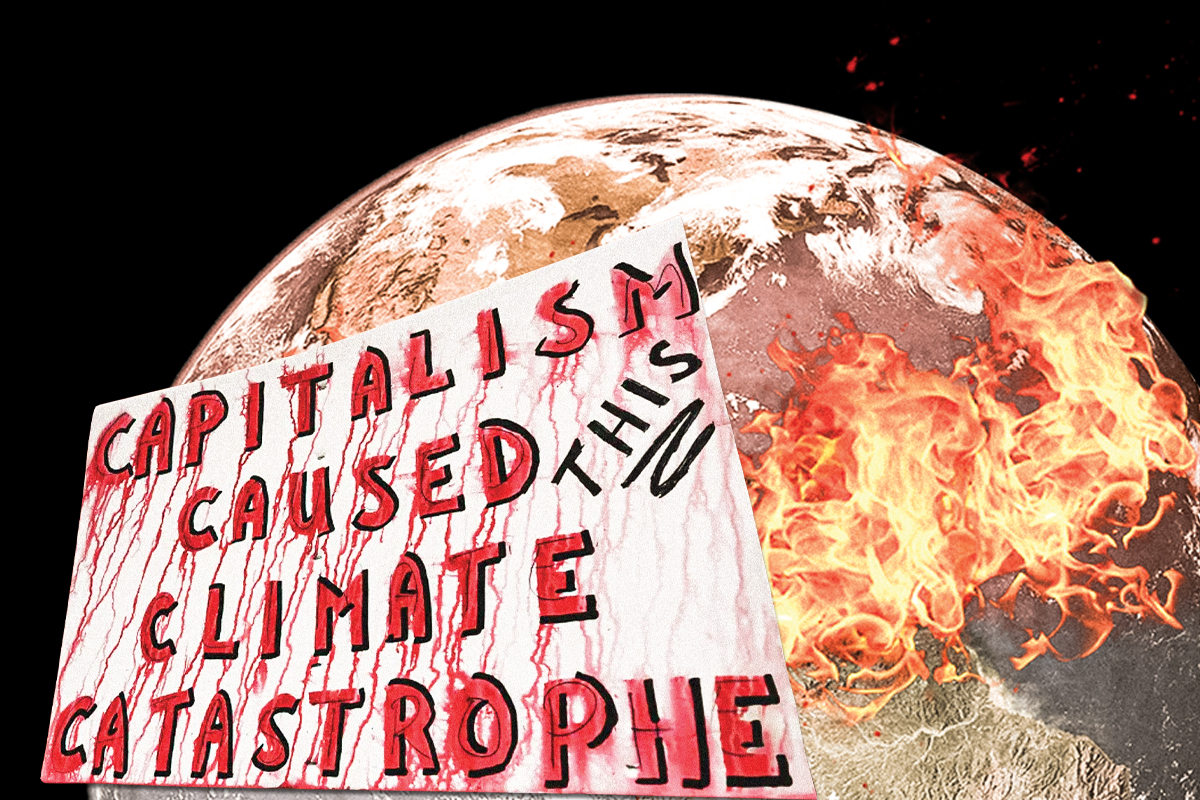In a recent report, scientists have announced that the Earth has breached the first “climate tipping point” – a threshold beyond which changes in the climate run away in an effectively irreversible negative feedback loop. The case in question is the irreversible decline of coral reef systems.
Climate breakdown is no longer some threat that future generations will have to deal with. Our generation is inheriting a world on fire – on the brink of around 20 climate tipping points, from rising sea levels, through to Amazonian dieback, and collapsing ice sheets.
The ‘switch off’ of the Atlantic currents, another probable future tipping point, would cause the UK climate to closely resemble that of northern Norway, should it be triggered . Scientists describe this “like a war situation […] something almost unimaginable”, due to the lack of infrastructure to deal with it.
Already, the UK experienced 3,000 excess deaths due to a heatwave in 2022. Meanwhile, recurrent flooding, storm damage, and coastal erosion threaten communities across Britain.
We are told this is an unsolvable issue. It certainly feels like it, given the way ‘our’ capitalist governments act. Scientists, meanwhile, are left puzzled, because the technological knowhow to begin combatting the climate crisis remains unutilised.
The World Meteorological Organisation has estimated that the cost of climate inaction over the next 75 years as $1.3 quadrillion (that’s 16 zeroes!) – an impossible number to imagine. Surely the logic of the market would push businesses to tackle this issue?
Unfortunately the ‘market’ isn’t logical. Billionaires and bankers remain relatively sheltered from the devastation, while workers have to foot up the cost – with their money or with their lives and livelihoods.
This is the logic of the capitalist system, which is driving the world off a very steep cliff – in fact, over 20 very steep cliffs. If we don’t fight now to get rid of this suicidal system, and rapidly implement climate solutions across the globe, then there won’t be a world for future generations to fight for.
Oliver Milligan, Sheffield
Hurricane Melissa exposes climate catastrophe
28 deaths in Jamaica and 30 in Haiti have been confirmed after Hurricane Melissa struck the Caribbean on 28 October. Reaching speeds of 185 miles per hour, Melissa is the strongest hurricane Jamaica has seen in 174 years.
Hurricane Melissa developed shortly after a report, led by the University of Exeter, stated we have reached our first climate related tipping point. This hurricane doubtless gained its record-breaking power through the Atlantic being warmer now than at any point in modern human history.
This is not a one off – just last year, Hurricane Beryl caused catastrophic damage in the region. We will continue seeing more ‘once in a century’ hurricanes unless fundamental changes to our entire social system are made.
The billionaires who control the world refuse to take action against the climate crisis as there are no easy profits to be made from such investments. Some might throw some pennies in aid to the tens of thousands devastated by hurricane Melissa.
Trump, as the commander-in-chief of the top global polluter in the world, the US military, has recently sent the world’s largest aircraft carrier to the Caribbean sea. Not to help those devastated by the hurricane, of course – instead, to attempt to overthrow another Latin American government!
We must fight climate catastrophe with class war. By removing the anarchy and endless pollution of capitalist production and militarism, and replacing it with democratic economic planning, decreasing global temperatures does not need to be a fantasy.
Henry Hutson, Birmingham
Indigenous climate activists storm COP30 climate conference in Brazil
A group of Indigenous activists sailed 3,000km down the Amazon river, to join protests at the COP30 climate conference held in Belém, Brazil. As one activist said, they are fighting not just for their rights, but for humanity’s as whole.
Arriving at COP30, they gathered outside the venue, with slogans like “our forests are not for sale”, “we can’t eat money” and “they cannot decide for us without us”.
Indigenous-managed parts of the Amazon rainforest extract a calculated 340 million metric tonnes of CO2 from the atmosphere every year. To put that into perspective, UK woodlands in total extracts 17.6 metric tonnes annually. In effect, the Amazon is one of the world’s largest carbon sinks, which has so far held back some of the worst impacts of carbon emissions.
But we are now passing climate tipping points globally. Last year, for example, it was revealed that there was a temporary collapse in the amount of CO2 absorbed by carbon sinks in the year prior. Levels of CO2 emissions are pushing these natural processes to their limit, threatening catastrophe.
And yet, despite all of this, the Amazon (alongside rainforests in Africa and South East Asia) continues to be sold off to exploitative companies, who slash-and-burn some of the most biodiverse and understudied natural habitats in the world, to create massive, monocultural factory farms, all in in the name of profit.
Ironically enough, deforestation was accelerated in the area surrounding Belém to complete infrastructure projects in time for the COP30 conference!
This year, Indigenous people were graciously granted the largest COP invitation to date, with 2,500 spaces. However, only 360 of those attending were allowed to be in the area of official negotiations, where they have the immense privilege of being drowned out by lobbyists and oil companies.
The workers, peasants, and oppressed peoples of the world should be the ones to decide what is right for them and their societies, not billionaire execs intent on selling off people and the planet.
Understanding this themselves, the activists fervently stormed through the doors of the reception to COP30, carrying banners and a huge Palestinian flag.
Despite being separated by thousands of miles, the Indigenous peoples in Brazil can clearly see the connection between their oppression and that of the Palestinian people.
Unfortunately, these protestors did not get very far, quickly coming into conflict with armed security. Since the protest, more forces, including the army, have been sent in. One activist reported being told by a soldier, “if you care about your life, you should leave”.
Workers and youth across the world should be inspired by this bold action. Everyone is sick and tired of the tokenistic gestures offered by the ruling class when it comes to the climate crisis.
This was a small group, taking their fight to the second-largest COP to date. But to save the planet, we need mass, international, class-based action. We refuse to be kept out of the decisions that impact our lives. They cannot decide for us without us!
Tegan Pritchard, Leyton





